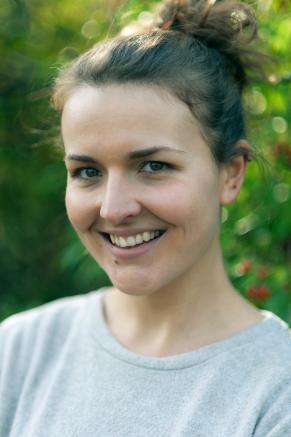Business, Consulting and Management Case Studies
The Transitions Survey was originally conducted in Autumn 2019 in order to gather data about the post-graduation jobs of recent PhD graduates. Participants were asked about their roles, the transition into their roles, and their advice for current PhDs to make the most of their PhD experience and prepare for post-PhD life and job searching. Those participating in the case studies included here also had the opportunity to update their responses in Summer 2020.
Dominika Coach, Institute of Molecular, Cell and Systems Biology

Employment
Learning & Development Specialist at ThoughtWorks, a technology consultancy company.
Six months to secure position after graduation.
How did your doctorate lead to your current post?
A Graduate Teaching Assistant role helped me get a job in learning & development. I realised early on that I didn't want to do research which pushed me to explore as many workshops and extra jobs as possible. Having spent so many years doing something I didn't enjoy, helped me to be brave when searching for my purpose (career-wise).
What career progression tips would you offer to researchers if they want to follow a similar path to your own?
- Network with people who are in business as soon as possible.
- Use career advisors at the university.
- Learn how to write amazing CVs and cover letters.
- Practise public speaking and speak during meetings all the time.
Transitioning to Employment
What was most helpful to you in managing your transition on from your PhD?
- Presentations during lab meetings, annual graduate events and conferences
- Teaching
- Reading a lot and trying to make sense out of it
- Excel - data analysis
- Word - thesis writing
What did you find most challenging in making the transition?
Stepping away from an intellectual environment, where knowledge and education is valued and into the world that values money and results that impact business.
The PhD
What advice would you give in terms of making the most of the PhD experience?
- Take part in as many career/networking events as possible - they will not be free later on in life.
- Teach as much as possible (or get involved in STEM workshops, public speaking, blogging - any other skill than research).
- Network and stay in touch.
Dominika Korzekwa, Institute of Molecular, Cell and Systems Biology

Employment
Learning & Development Specialist at ThoughtWorks, a technology consultancy company.
Six months to secure position after graduation.
How did your doctorate lead to your current post?
A Graduate Teaching Assistant role helped me get a job in learning & development. I realised early on that I didn't want to do research which pushed me to explore as many workshops and extra jobs as possible. Having spent so many years doing something I didn't enjoy, helped me to be brave when searching for my purpose (career-wise).
What career progression tips would you offer to researchers if they want to follow a similar path to your own?
- Network with people who are in business as soon as possible.
- Use career advisors at the university.
- Learn how to write amazing CVs and cover letters.
- Practise public speaking and speak during meetings all the time.
Transitioning to Employment
What was most helpful to you in managing your transition on from your PhD?
- Presentations during lab meetings, annual graduate events and conferences
- Teaching
- Reading a lot and trying to make sense out of it
- Excel - data analysis
- Word - thesis writing
What did you find most challenging in making the transition?
Stepping away from an intellectual environment, where knowledge and education is valued and into the world that values money and results that impact business.
The PhD
What advice would you give in terms of making the most of the PhD experience?
- Take part in as many career/networking events as possible - they will not be free later on in life.
- Teach as much as possible (or get involved in STEM workshops, public speaking, blogging - any other skill than research).
- Network and stay in touch.

